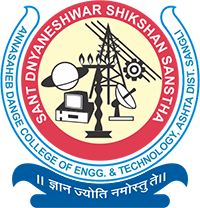Department Vision :
To be a leader in producing highly skilled professional engineers in computer science and its emerging fields.
Department Mission :
M1 : Fostering academic excellence through outcome-based education.
M2 : Inculcating students through skill-enhanced learning with ethical values.
M3 : Preparing students for employment, higher education,and entrepreneurship.
M4 : Building strong relationships with all stakeholders to grow with all stakeholder to grow with continuous improvement.
Department Programme Educational Objectives (PEOs) :
PEO1 : Computer Science knowledge that will serve as a basis for solving problems in real life with the help of teamwork,critical thinking, and effective communication.(Domain Knowledge)
PEO2 : Ability to use fundamental computer science and emerging engineering skills to address hardware and software problems in engineering.(Core Competency)
PEO3 : Understanding of social and environmental challenges in computer science and engineering when they look for job opportunities,pursue higher education,or set up their own ventures. (Professionalism)
PEO4 : Ability to employ modern tools and technologies to adapt to a changing environment. (Lifelong Learning)
Department Program Outcomes (POs) :
Engineering Graduates will be able to :
PO1 : Engineering knowledge: Apply the knowledge of mathematics, science, engineering fundamentals, and an engineering specialization to the solution of complex engineering problems.
PO2 : Problem analysis: Identify, formulate, review research literature, and analyze complex engineering problems reaching substantiated conclusions using first principles of mathematics, natural sciences, and engineering sciences.
PO3 : Design/development of solutions: Design solutions for complex engineering problems and design system components or processes that meet the specified needs with appropriate consideration for the public health and safety, and the cultural, societal, and environmental considerations.
PO4 : Conduct investigations of complex problems: Use research-based knowledge and research methods including design of experiments, analysis and interpretation of data, and synthesis of the information to provide valid conclusions.
PO5 : Modern tool usage: Create, select, and apply appropriate techniques, resources, and modern engineering and IT tools including prediction and modeling to complex engineering activities with an understanding of the limitations.
PO6 : The engineer and society: Apply reasoning informed by the contextual knowledge to assess societal, health, safety, legal and cultural issues and the consequent responsibilities relevant to the professional engineering practice.
PO7 : Environment and sustainability: Understand the impact of the professional engineering solutions in societal and environmental contexts, and demonstrate the knowledge of, and need for sustainable development.
PO8 : Ethics: Apply ethical principles and commit to professional ethics and responsibilities and norms of the engineering practice.
PO9 : Individual and team work: Function effectively as an individual, and as a member or leader in diverse teams, and in multidisciplinary settings.
PO10 : Communication: Communicate effectively on complex engineering activities with the engineering community and with society at large, such as, being able to comprehend and write effective reports and design documentation, make effective presentations, and give and receive clear instructions.
PO11 : Project management and finance: Demonstrate knowledge and understanding of the engineering and management principles and apply these to one’s own work, as a member and leader in a team, to manage projects and in multidisciplinary environments.
PO12 : Life-long learning: Recognize the need for, and have the preparation and ability to engage in independent and life-long learning in the broadest context of technological change.
Program Specific Outcome (PSO)
PSO1 : The ability to adapt to the most recent developments in emerging fields like Internet of Things, Cyber Security and Blockchain technologies for developing real time applications.
PSO2 : The ability to get acquainted with current developments in research and industry and, as a result, solve problems in the real worlds by applying expertise in fields like as data analytics, machine learning , cloud computing, and security.

